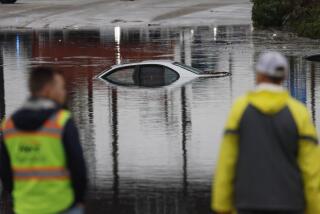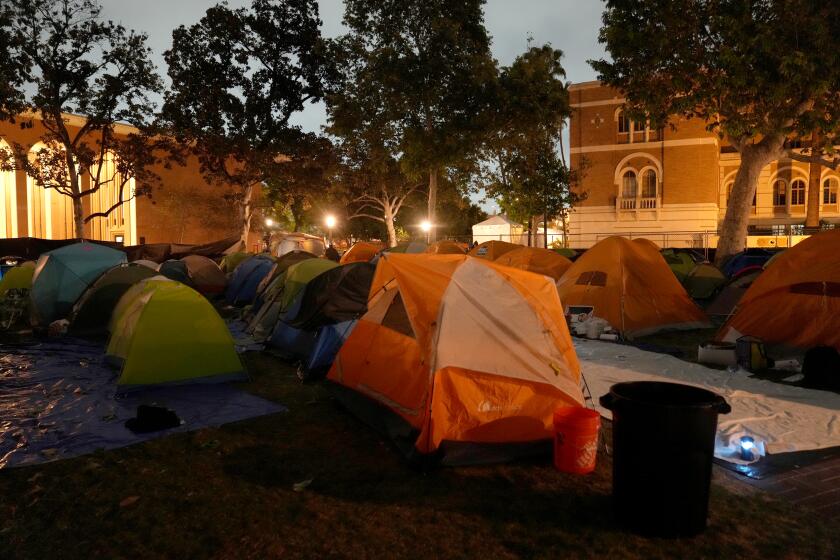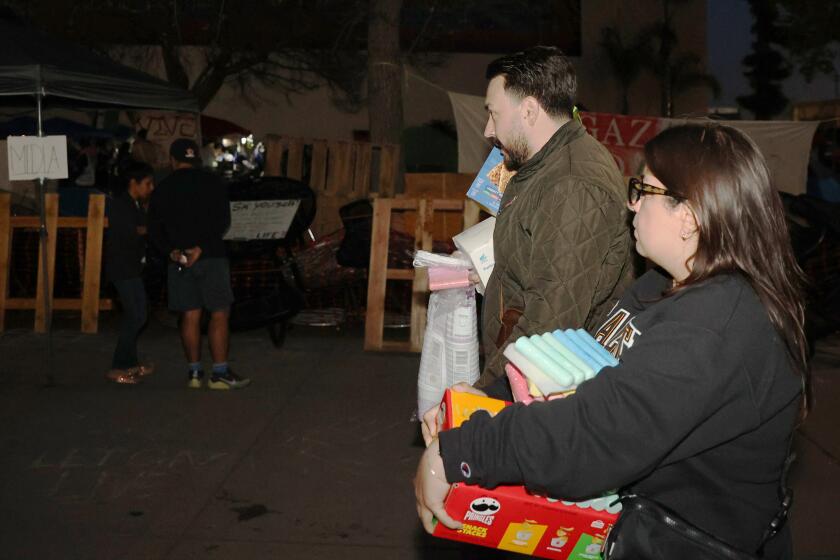Atmospheric river could bring a travel nightmare after Thanksgiving holiday

Much is made about traffic in the days before Thanksgiving.
But the traffic back home after the holiday weekend can also be nasty — and this year be particularly problematic because of the weather.
Just on the heels of California’s first statewide storm of the wet season, an even more powerful storm that moved into Northern and Central California on Saturday is expected to persist through Tuesday.
The storm will likely tie up roads for skiers returning home to the San Francisco Bay Area from Lake Tahoe ski resorts and the Los Angeles area from Mammoth beginning Saturday night. Also, Interstate 5 between Redding and Mount Shasta city — which saw a 24-hour closure just before Thanksgiving — could see a foot of snow over the next few days.
The worst precipitation was expected to begin Saturday night.
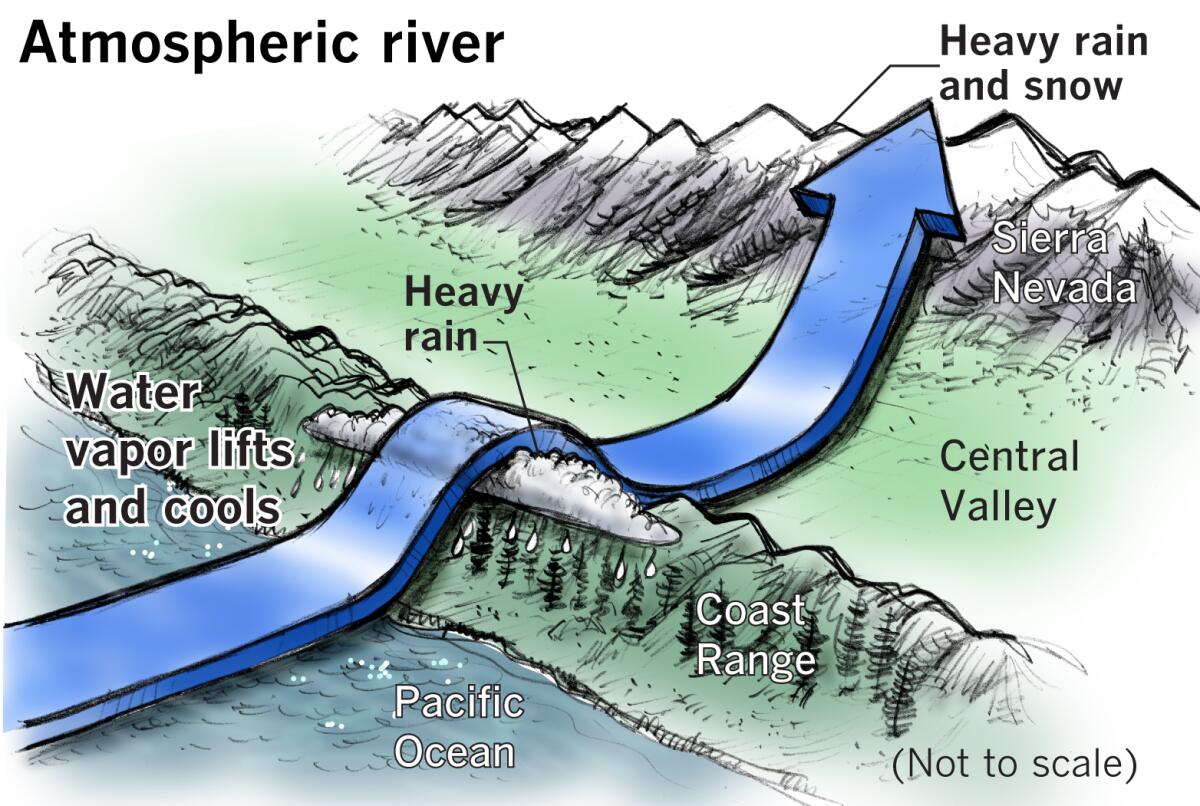
The moisture fueling the storm this weekend will be fed by an atmospheric river of subtropical moisture. Southern California will miss the brunt of the atmospheric river, but could see some rain starting Tuesday as the weather pattern changes.
The storm is forecast to be longer lasting for Northern and Central California, posing a risk of mudslides.
What is an atmospheric river?
An atmospheric river is a long plume of water vapor that can pour over from the Pacific Ocean through California.
It carries so much water that it’s like a river in the sky. A strong atmospheric river can carry 7½ to 15 times the average flow of liquid water at the Mississippi River’s mouth.
Just a few atmospheric river events can bring West Coast states such as California from one-third to one-half of their annual precipitation.
How atmospheric rivers bring heavy rain and snow to California
How will this storm affect California?
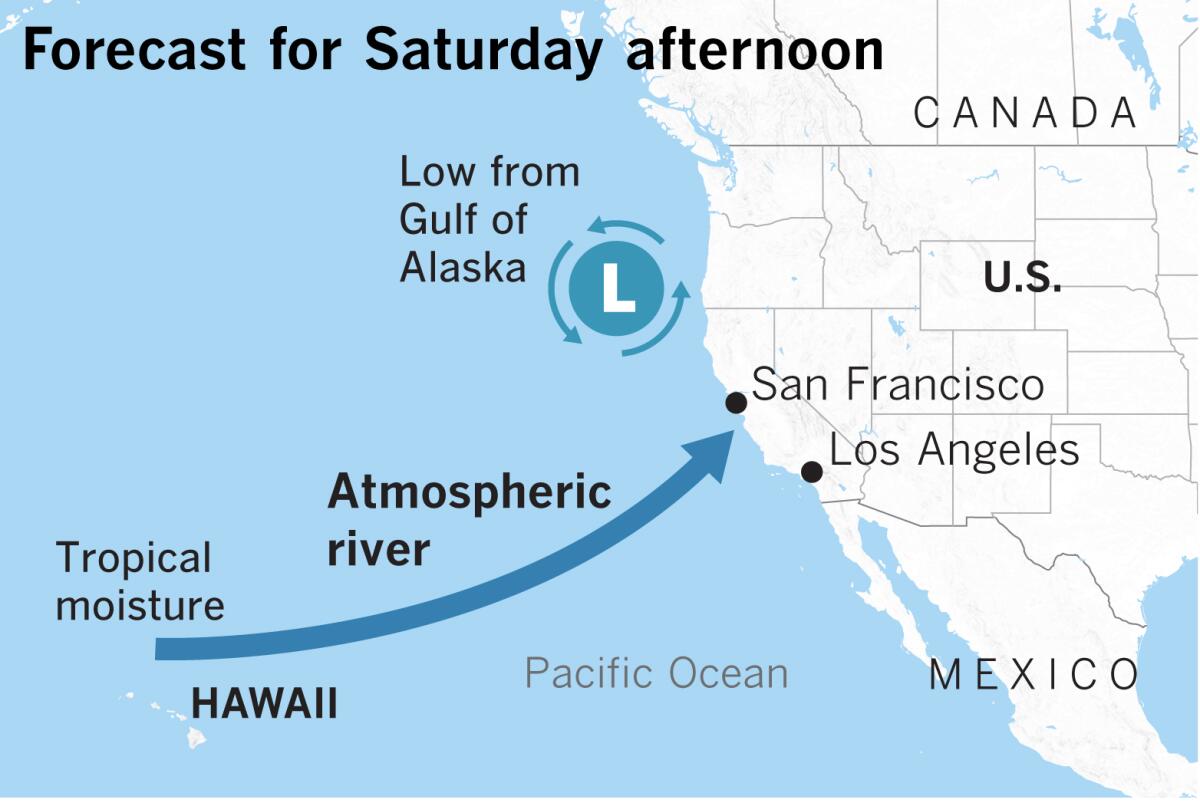
San Francisco Bay Area and Central California: The storm is expected to bring rain across the Bay Area before tapering off Wednesday. Unlike the pre-Thanksgiving storm, which brought rain in a narrow band that moved fairly quickly through the region, this storm will have a lot more moisture, varying between light rain to periods of heavy rain for the weekend, Walbrun said.
“It’s feast or famine in California — if we have drought, we’ve got drought; if we have rain, we have rain,” Walbrun said.
The storm will likely spread as far south as Santa Barbara County on Sunday.
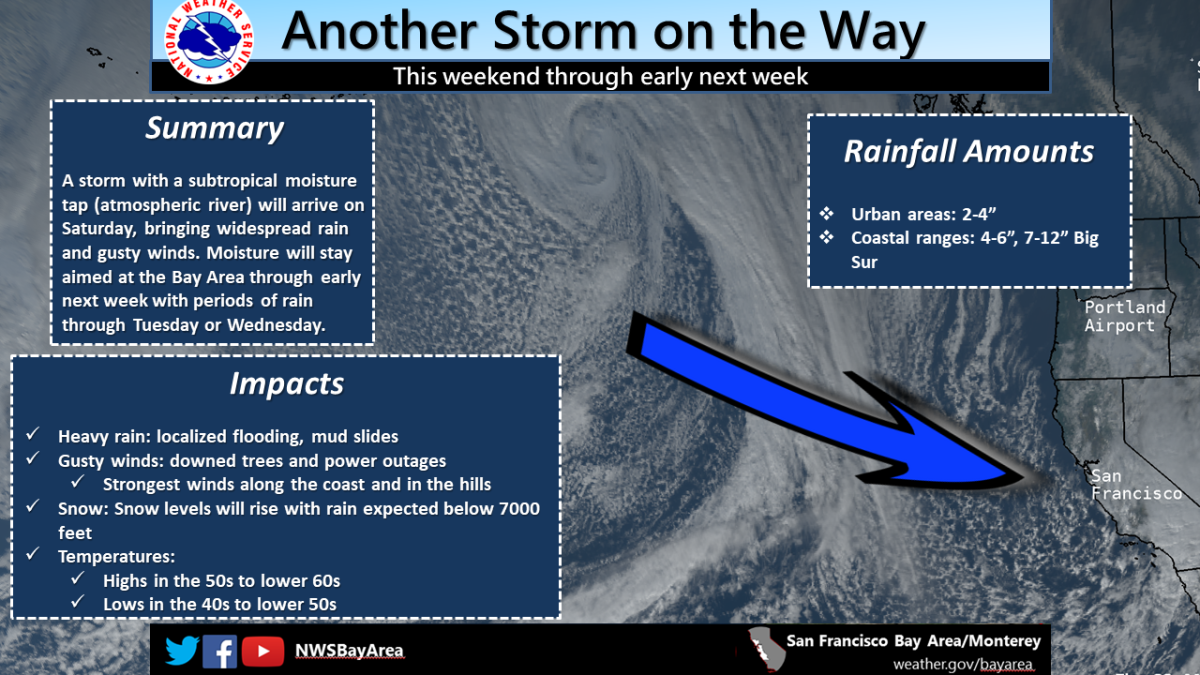
Mountains of Northern California: Forecasters are warning of major travel delays, near whiteout conditions and road closures. People trying to leave out of the Sierra Nevada could face problems through late Monday.
The snow could ease in the Interstate 5 area between Redding and Mount Shasta city by Sunday afternoon, but is expected to continue to be troublesome for Sierra Nevada roads through Monday.
Anyone traveling between Mount Shasta city and Redding on Interstate 5 should try to avoid the roadway through at least Sunday morning. This part of the roadway reaches an elevation of 3,912 feet and could get a foot of snow; too many motorists without chains during a snowstorm brought this section of roadway to a close for 24 hours before Thanksgiving.
Forecasters urged motorists to just avoid traveling during this time, but if they have to, “they gotta have chains, have blankets, food and water,” said Ryan Sandler, meteorologist with the Medford, Ore., weather service office.
Southern California: Initial indications are rain could return by Tuesday afternoon as low pressure moves in from the Gulf of Alaska. The lastest forecast calls for 1 to 2 inches of rain in Los Angeles County.
More to Read
Start your day right
Sign up for Essential California for news, features and recommendations from the L.A. Times and beyond in your inbox six days a week.
You may occasionally receive promotional content from the Los Angeles Times.



